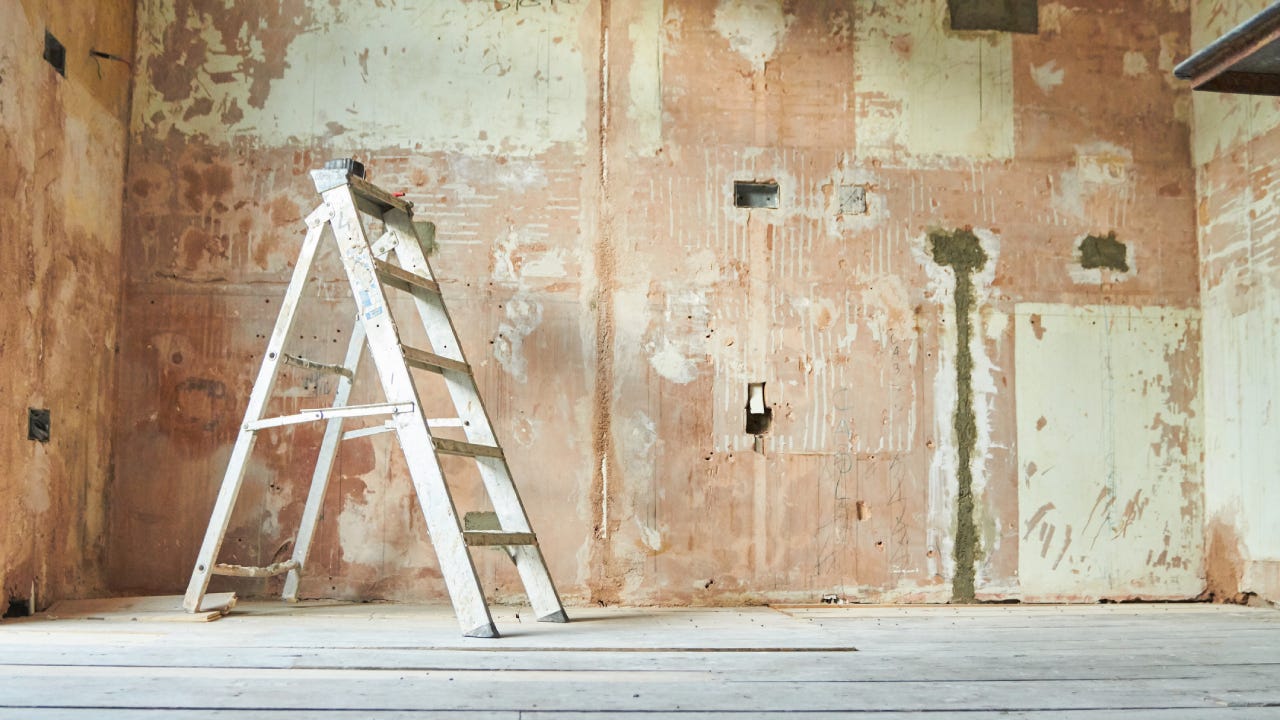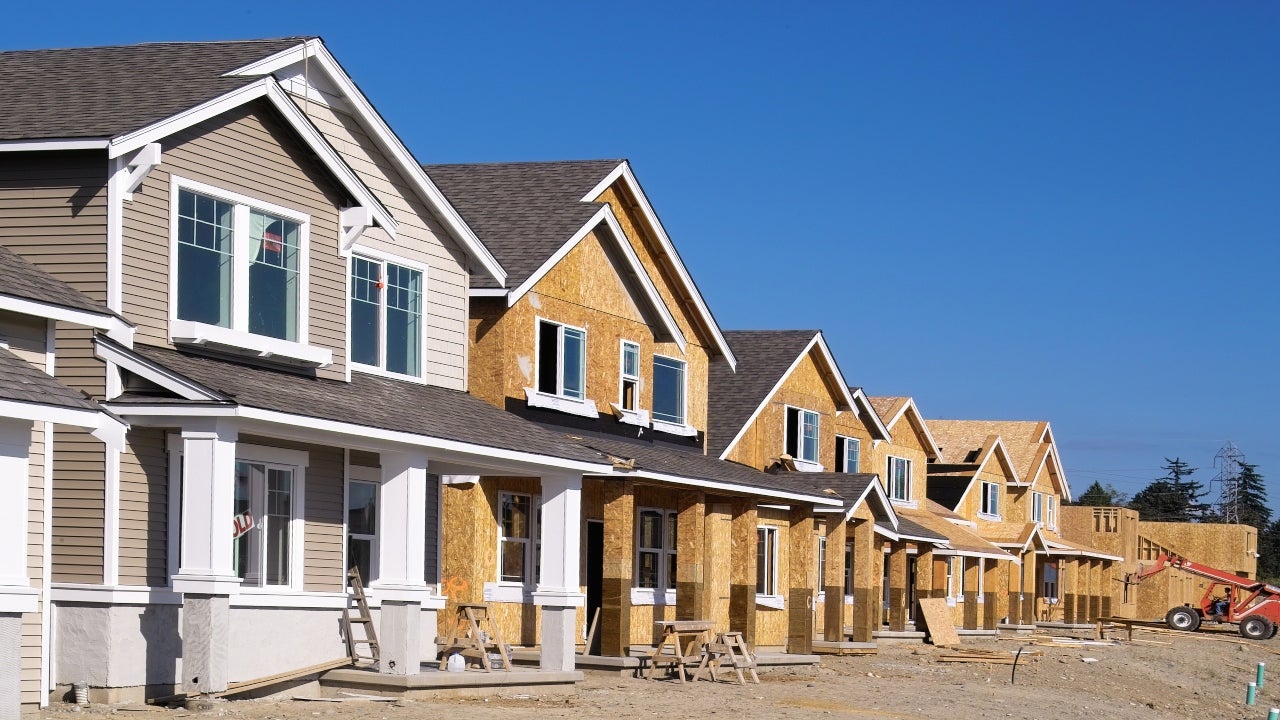Should you remodel or move? Here’s what to consider

If your house doesn’t feel like your forever home, you aren’t alone. Bankrate’s 2024 Homeowner Regrets Survey found that almost half of U.S. adults (47 percent) have a regret about their purchase. Forty percent of survey respondents cited maintenance and other hidden costs as the reason behind their regret, and 18 percent said they bought too small of a home. After realizing that your home doesn’t provide what you need, you have two options: move or remodel. Both are significant financial decisions and may come with home insurance implications.
Remodel vs. move: how to decide
Ultimately, whether you should remodel or move is a personal decision. The financial aspect of remodeling vs. moving is probably top of mind for most homeowners, but there are other things to consider. If you have a family, are you willing to change school districts? Would selling your home and buying a new one be slower or faster than a renovation project? If you’re in a state with a tough home insurance climate, is it worth it to give up your policy? Here’s what to consider.
Should you remodel?
Perhaps your current location is ideal. The proximity to work, school, family and friends may be hard to beat. Or maybe you have a sentimental attachment to your current home. No matter the reason you’re leaning toward remodeling, it comes with benefits and drawbacks.
Pros of remodeling
- May boost the value of your current home: The typical return on investment for renovation projects can vary anywhere from 20 percent to 100 percent. In addition to making your home a more comfortable place in the near term, this could also boost your home equity in the long run.
- Can customize to meet your family’s tastes and needs: Does your family value a large eat-in kitchen with a spacious island? Would a drop zone with enough storage for several children make your daily routine easier? When renovating your current home, you can focus on making changes suited to your unique needs and wants.
- Can avoid the hassle and expense of listing your home and moving: While moving may seem like the more straightforward solution, you still have to weigh the logistics of listing and selling your current home, finding a new one and moving your belongings from point A to B.
Cons of remodeling
- Can be disruptive: As you tackle different parts of your renovation, you may have to adjust how you operate in your home. For example, you may find yourself without a fully functioning kitchen or bathroom for longer than you expected.
- Can cost more than it’s worth: While most projects add some kind of value to your property, not all home renovations make sense from an investment standpoint. While a new garage door yields a 102.7 percent average return on investment and a kitchen yields an 85.7 percent average return on investment, other projects — like many bedroom remodels — may end up costing you big for little to no return.
- Can increase home insurance premiums: The new changes to your home may impact the amount of insurance you need, potentially increasing the cost of your insurance policy.
Further, if you go this route, you’ll likely need to find a remodeling contractor, and hiring one can be pricey. While a good contractor can help make the remodeling process smoother, a bad contractor might make you regret working on your house altogether. However, an extensive home renovation can involve a lot of moving parts, like getting the right permits and renting special equipment. So having the right remodeling contractor could be worthwhile.
Should you move?
You may have outgrown your home in more ways than one, and you may have different needs or a different family structure than when you moved in. The decision to move to a new home can make sense in many scenarios, but it’s a significant undertaking, both practically and financially.
Pros of moving
- Chance to re-evaluate and reimagine what you want and need: Deciding to move means you can come up with an entirely new wish list, which may include features you didn’t get in your first home. Maybe you want a larger yard, a finished basement or a second level.
- Can cash in on your home equity: Real estate tends to appreciate in value over time, meaning you may be able to tap into your investment if you eventually sell.
- Opportunity to find a turnkey property: As opposed to the process of renovating, you can shop for a property that meets your needs now rather than living through months of renovations.
- Could take advantage of the housing market: If you play your cards right, it’s possible that the housing market could work in your favor by offering better value for your money. In general, late spring and early summer are considered good times to sell homes, but real estate trends are continually in flux and heavily dependent on your location.
Cons of moving
- Have to prepare and list your home, pack, close and move: Listing and selling your home comes with its own set of costs. Depending on how far you’re moving away, you may spend hundreds or thousands of dollars getting your belongings to the new place.
- May limit your financial options for the next few years: Moving tends to only make financial sense if you plan to stay in the new home for at least three to five years. This can be limiting if you have other life changes lined up.
- Can be stressful: Finding a home that meets your wants and needs can be time-consuming and stressful. What if you can’t find what you want within budget? What if your home sells before you find a new place? You might even have a sentimental attachment to your home that makes relocating emotionally difficult. In fact, the stress of a move can impact everything from your sleep patterns to your performance at work.
If you choose to move, you’ll likely need some help getting your belongings from your old property to your new home. Like a remodeling contractor, the moving company you choose can make the process easier for you — or cause a larger headache. Moving costs will vary depending on how much stuff you have and how far you’re going, but on average, it costs $1,711 for a local move and $4,579 for a cross-country move.
Remodel or move: how each will impact your home insurance
A remodel will likely affect your homeowners insurance premium because it impacts how much your insurance carrier might need to pay out in the event of a claim. If you were to remodel your backyard and install a pool, for instance, that could mean a hefty liability claim if someone slips and falls on the wet surface around it. Your insurer may charge you a higher rate to account for the added risk.
Even renovations that do not heighten the risk of accidents at your home may require adjusting your coverage. Your remodel might increase the cost to rebuild your home after a covered loss, which means your insurance provider will need to modify your dwelling coverage so you’re not underinsured.
Similarly, if your remodel involves purchasing high-end appliances or new, more expensive furniture to finish the space, you may need to increase your personal property coverage levels.
Home insurance during a remodel
During the remodel, your property may be exposed to more risk. If you need to store materials in your yard before they can be installed, for example, they may need coverage. Some homeowners insurance companies offer a temporary add-on called a builder’s risk endorsement to help layer on the financial protection you need while renovating. Your contractors should all have insurance, too. Confirm that they are properly licensed and have their own insurance policies to protect you financially before their work begins.
5 renovations that could impact your home insurance bill
Not all home renovation projects will impact your home insurance premium. Repainting the walls or installing more cabinets, for example, is not likely to have a material effect on your home insurance. But for larger projects that affect your home’s value or your liability exposure — like those outlined below — you’ll want to keep your home insurance company in the loop.
Adding square footage
If space is an issue, building an addition can create a home office. Finishing a basement can tack on a whole level. But it also means you need to update your insurance policy to match your home’s new characteristics and square footage. These changes might increase your premium since your dwelling coverage amount will likely need to increase. That way, should your home be destroyed in a covered claim, your insurance policy can provide a payout sufficient to replace it.
Renovating the kitchen
If you have plans for a relatively simple kitchen upgrade — like replacing your backsplash — you probably can skip the call to your insurance company. But if you are investing significant money in it, such as upgrading your countertops or cabinets, ask if your policy needs to be updated. Because a kitchen remodel can make your home more expensive to repair or rebuild, you may need a higher level of dwelling insurance coverage once the 2.0 version of your kitchen is complete.
Installing a pool
Most insurance companies consider swimming pools “attractive nuisances.” Trampolines, playgrounds and anything else that may be enticing to a child could fall into the same category. Attractive nuisances are concerning to insurers since they could result in injury or death. With home insurance, a greater risk of claims-causing events like these typically translates into a higher premium.
Updating wiring
The good news is that some renovations might bring the cost of your coverage down. For example, bringing your wiring up to the latest building standards can mean a lower risk of fire claims — and therefore, lower insurance premiums. Upgrading outdated systems, like replacing knob and tube wiring, could even make your home eligible to insure with other carriers, giving you the opportunity to switch to a cheaper home insurance company if desired.
Replacing your roof
A new roof is pricey, but it could help you save money on your homeowners insurance. In fact, this is one instance in which you definitely want to inform your insurance company of the update. A newer roof means better protection for your home, and that can bring the cost of your policy down.
Frequently asked questions
Why we ask for feedback Your feedback helps us improve our content and services. It takes less than a minute to complete.
Your responses are anonymous and will only be used for improving our website.






